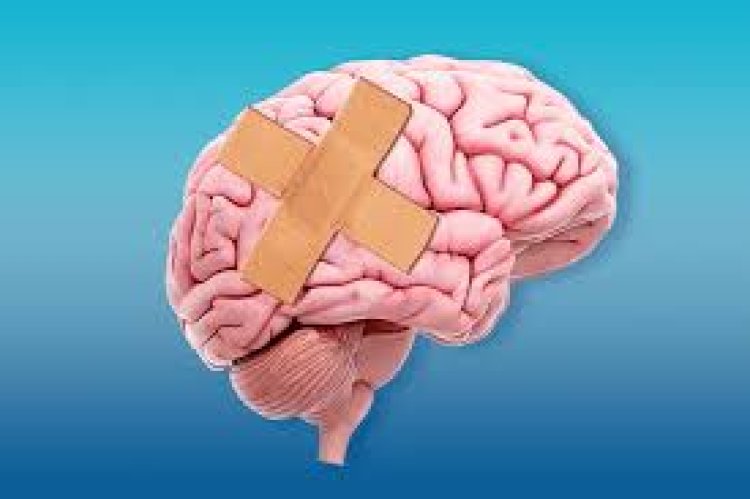Rewiring Your Brain After Porn Addiction

Breaking free from porn addiction is more than just quitting a habit—it's about healing the brain and reclaiming control over your life. When someone struggles with compulsive porn use, the effects on the brain can be profound, but the good news is that recovery is entirely possible. With time, patience, and consistent effort, you can rewire your brain and rebuild healthier habits. This article explores how to reverse the effects of porn addiction and offers insight into how to quit porn addiction for good.
Understanding What Porn Does to the Brain
To fully appreciate the recovery process, it’s essential to understand how porn affects the brain. Each time you watch porn, your brain releases a surge of dopamine, the chemical responsible for feelings of pleasure and reward. Over time, consistent and excessive dopamine release from porn consumption leads to desensitization. This means your brain starts needing more stimulation to feel the same pleasure, which can cause you to seek more extreme content or more frequent viewing.
This process changes the brain’s neural wiring. It strengthens the connections associated with porn use and weakens those related to impulse control and healthy pleasure sources like relationships, hobbies, or achievements. Understanding this mechanism is key to figuring out how to quit porn addiction and restore your brain to a balanced state.
What “Rewiring” Really Means
Rewiring the brain is a process known as neuroplasticity. Simply put, it’s your brain’s ability to form new neural pathways and discard old ones. When you stop watching porn, the pathways linked to the addictive behavior begin to fade, while new, healthier ones can emerge—especially when you replace the old habit with new, rewarding experiences.
However, this rewiring doesn’t happen overnight. Depending on how long the addiction lasted, it may take weeks or even months before significant changes are felt. Patience is crucial during this phase. Your brain is healing, even when you don’t see immediate results.
The Withdrawal Phase and Early Challenges
One of the toughest parts of the rewiring journey is dealing with withdrawal symptoms. These can include anxiety, depression, irritability, mood swings, fatigue, and low motivation. Some people also experience something called "flatline"—a period when they feel emotionally numb or sexually unresponsive. This is temporary but can be discouraging if you’re not prepared for it.
During this stage, it’s important to remind yourself why you’re quitting and to focus on long-term benefits. It helps to keep a journal, track your progress, and celebrate small wins. If you’re wondering how to quit porn addiction, staying consistent through withdrawal is a vital step toward healing.
Creating New Habits and Healthy Rewards
As the brain rewires, it's crucial to replace the void left by porn with positive activities. These new habits will help build new pathways in your brain and make the process of quitting more sustainable. Some effective strategies include:
-
Physical activity: Exercise releases endorphins and boosts dopamine naturally.
-
Mindfulness and meditation: These practices help you stay present and reduce impulsive behaviors.
-
Creative outlets: Engaging in art, music, or writing can redirect your energy and provide emotional release.
-
Social connection: Spending time with friends or family can help rebuild intimacy and trust.
-
Skill-building: Learning something new provides a sense of achievement and keeps your mind engaged.
These activities not only help with recovery but also enrich your life in meaningful ways. They can make you less likely to return to porn as a coping mechanism.
Accountability and Support Systems
Recovery is much easier with support. Whether it's joining an online community, attending group therapy, or confiding in a trusted friend or partner, having someone to share your journey with can provide strength and motivation. Accountability partners can help keep you on track, especially during moments of weakness.
Professional help is also an option. Therapists who specialize in behavioral addiction can offer valuable tools and perspectives. They can guide you through the deeper emotional triggers behind your addiction and help you develop healthier coping strategies.
If you're still searching for how to quit porn addiction, consider that support systems often make the difference between relapse and long-term success.
Staying Committed to Long-Term Change
Rewiring your brain is not a one-time effort; it requires ongoing commitment. Even after you've made significant progress, it’s important to stay mindful of your triggers and continue reinforcing the habits that support your recovery.
Setbacks may happen, but they don’t erase your progress. Instead of giving in to shame or guilt, view each setback as a learning opportunity. Reflect on what led to it and how you can avoid similar situations in the future.
Stay focused on your “why”—whether it’s improving your mental health, restoring your relationships, or simply feeling free again. This vision will keep you moving forward.
Final Thoughts
Rewiring your brain after porn addiction is a challenging yet deeply rewarding journey. It’s a testament to your resilience and your ability to grow beyond old patterns. By understanding the science behind addiction, facing withdrawal with courage, building new habits, and leaning on support, you can overcome even the most deeply rooted behaviors.
If you're still trying to understand how to quit porn addiction, remember: it’s not just about stopping the behavior—it's about creating a life so fulfilling that you no longer need to escape from it. And that kind of life is absolutely within your reach.















